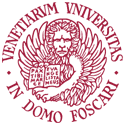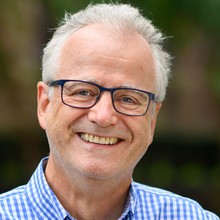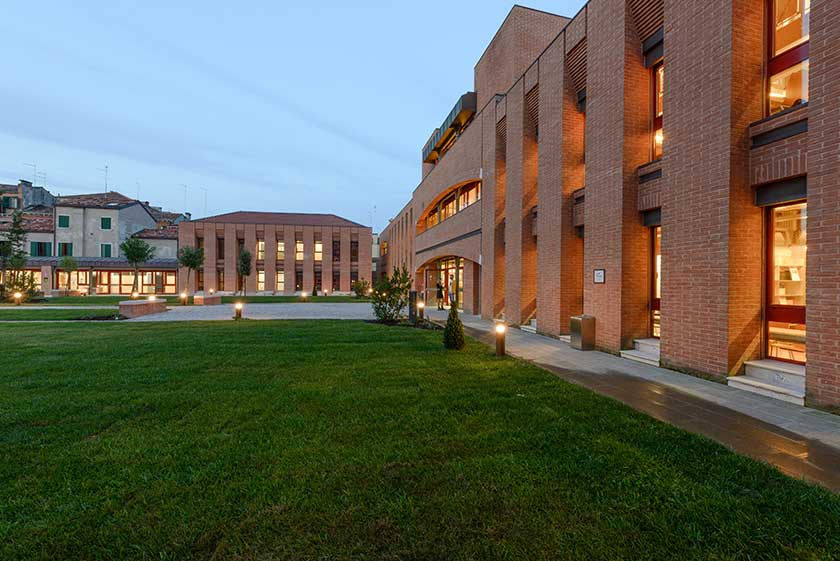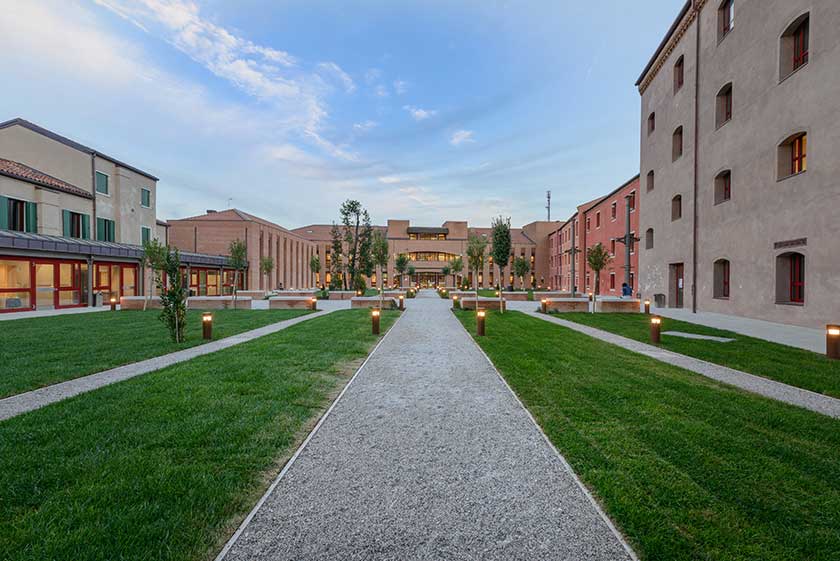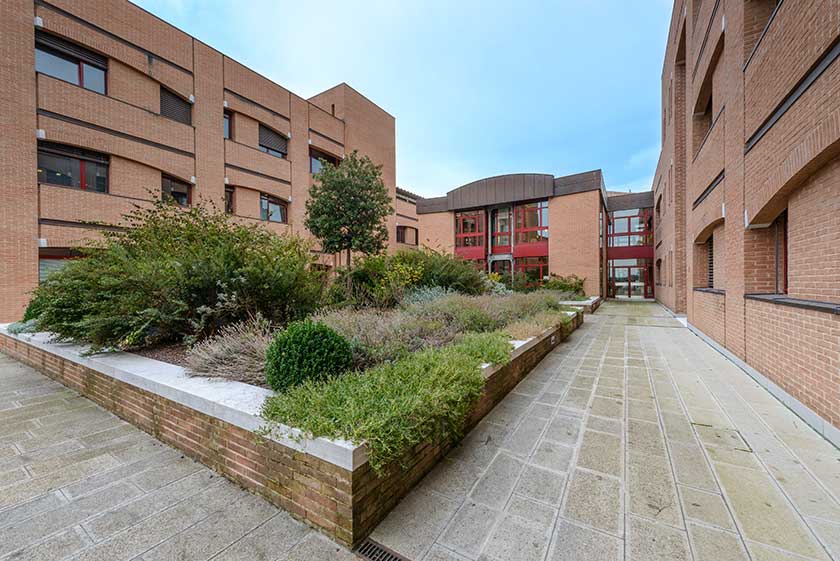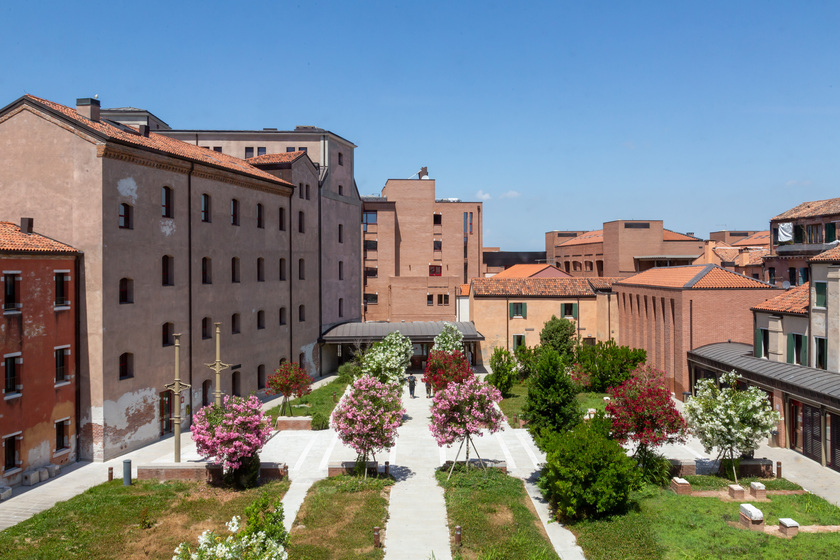EACS conference 2026
21-25 July 2026, Ca’ Foscari University of Venice, Italy
Conference
The 26th biennial conference of the European Association for Chinese Studies (EACS) will take place in Venice, Italy, from 21 to 25 July 2026. The conference is organized by the EACS in collaboration with the Department of Asian and North African Studies (DSAAM) at Ca’ Foscari University of Venice.
Scholars working in all areas of Chinese Studies, both from Europe and worldwide, are warmly invited to participate.

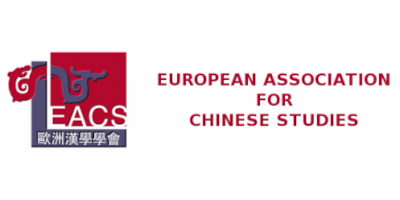
Keynote speakers
Princeton University
Throughout the Qing Dynasty, Chinese scholars engaged in intensive debates about the intellectual heritage received or reconstructed from antiquity: its meanings and uses for the political, institutional, and intellectual foundations of an imperial state marked by Manchu rule, territorial expansion, and the increasingly acute encounters with foreign powers. These debates only became more urgent with the collapse of the empire and the formation of the Chinese nation state, when preeminent Republican-period intellectuals — many of them foreign-educated or -influenced — advanced radically diverging approaches toward both the textual heritage and China’s new archaeological discoveries. Today, in the age of unprecedented academic exchange, argument, and archaeological discoveries, the meaning of antiquity and of classical studies is once again contested, now in a thoroughly international framework.
Martin Kern, the Joanna and Greg Zeluck Professor in Asian Studies at Princeton University, studies the textual culture of early China. His recent books include Qu Yuan and the Chuci: New Approaches (ed. with Stephen Owen; Brill, 2023), Zuozhuan and Early Chinese Historiography (ed. with Yuri Pines and Nino Luraghi; Brill, 2023), and Biaoyan yu chanshi: Zaoqi Zhongguo shixue yanjiu 表演與闡釋:早期中國詩學研究 (Beijing Sanlian, 2023); forthcoming are Writing and Community in 300 BCE China: The Canonical Poems (Shi 詩) at the Chu 楚 Capital of Ying 郢 (Brill 2026; Zhonghua shuju 2027); Jing shi jie wen: Zaoqi Zhongguo jingdian yu wenxue dufa 經史皆文:早起中國經典與文學讀法 (Beijing Sanlian, 2026), and Philological Practices: A Comparative Historical Lexicon (ed., with Glenn W. Most; Princeton University Press, 2027).
Scholarship on China in the aftermath of the reform and opening of the late 1970s has long debated the extent to which China was witnessing a moral crisis. This talk will build on this work and on more recent ethnographies about ordinary ethics (Stafford 2013) and crises of care (Steinmüller 2023) to examine the emergence and development of a complex and changing spectrum of subtle forms of ethical engagement since the late reforms. Drawing on Puig de la Bellacasa’s (2017) concept of “matters of care,” this talk examines how individuals enact care and how they reflect on the values and relationships that are forged, questioned, and reconfigured in the process. The analysis is grounded in my research over the past two decades, spanning ethnographic fieldwork on health, cancer, and care, followed by work on forced relocation in my long-term field site in Sichuan; more recent research with Chinese communities in Italy; and collaborative studies of environmental activism in rural and urban China. Thinking and moving across these seemingly disparate projects, topics, and sites promotes a more inclusive focus on the plurality of care practices embraced and ethical discourses articulated. It also yields empirical and conceptual insights that are valuable for social scientific debates on morality, agency, and the ethics of care within China and beyond.
Anna Lora-Wainwright is Professor of the Human Geography of China at the University of Oxford. She has a PhD in Social and Cultural Anthropology from Oxford University; an MA in Chinese Studies and a BA in Anthropology, both from the School of Oriental and African Studies, London. She is the author of two monographs on contemporary rural China (Fighting for Breath: Living Morally and Dying of Cancer in a Chinese Village 2004 and Resigned Activism Living with Pollution in Rural China 2021) and of numerous articles in the fields of medical anthropology and environmental politics.
Her research to date has focused on evolving forms of morality and practices of care in China and among overseas Chinese. She is most interested in lived experience and the ways in which individuals, families and communities find ways of making sense of hardship and exerting agency. Her current research concerns Chinese communities in Venice and (with Thomas Johnson and Katherine Wong) Zero-waste Living in Urban China. Anna also expanded her interest in environmental justice beyond China, and in 2021 began undertaking collaborative work on toxicity and activism in Italy.
Aims and history, purpose and format
The European Association for Chinese Studies (EACS) is an international organisation representing China scholars from all over Europe.
Currently, it has more than 1200 members. It was founded in 1975 and is registered in Paris. It is a non-profit organisation not engaging in any political activity.
The purpose of the Association is to promote and foster, by every possible means, scholarly activities related to Chinese Studies in Europe. The EACS serves not only as the scholarly representative of Chinese Studies in Europe but also as a contact organisation for academic matters in this field.
This is an in-person conference.
Activities
One of the Association’s major activities are the biennial conferences hosted by various centres of Chinese Studies in different European countries. The papers presented at these conferences comprise all fields from traditional Sinology to studies of modern China.
In addition, summer schools and workshops are organised under the auspices of the EACS. The Association carries out scholarly projects on an irregular basis. Since 1995 the EACS has provided Library Travel Grants to support short visits for research in major sinological libraries in Western Europe. The scheme is funded by the Chiang Ching-Kuo Foundation and is destined for PhD students and young scholars, primarily from Eastern European countries. The EACS furthers the careers of young scholars by awarding a Young Scholar Award for outstanding research. A jury selects the best three of the submitted papers, which are then presented at the next bi-annual conference. This scheme is also supported by the Chiang Ching-Kuo Foundation.
Call
Call for papers and abstract submissions
The conference organisers encourage presenters to submit their proposals for individual papers, panels (up to four abstracts/panel participants), double panels (up to eight abstracts/panel participants), and posters. Scholars working in all areas of Chinese Studies, both from Europe and worldwide, are warmly invited to submit proposals for contributions in one of the following disciplinary categories:
The board accepts proposals in the following formats:
- individual paper proposal: abstract, max. 250 words;
- panel proposals: panel abstract, max. 250 words; names of the panel organizer, chair, participants, and optionally a discussant; 3-4 individual abstracts, with max. 250 words each;
- double-panel proposals: panel abstract, max. 250 words; names of the panel organizer, chair, participants, and optionally a discussant; 6-8 individual abstracts, with max. 250 words each;
- poster proposal: abstract, max 250 words; names of the poster organizer and participants.
Proposals can be submitted from October 1st to November 30th 2025.
Acceptance or rejection will be communicated by January 31st 2026.
Submission page: easychair.org/conferences
After logging in to EasyChair, please read the submission instructions.
Each participant is permitted to submit a single abstract, which must fall into one of the following categories: individual paper proposal, panel abstract, double-panel proposal, or poster proposal. There are no limitations on serving as chair or discussant across sessions.
The Marco Polo Centre for Global Europe-Asia Connections (MaP) is pleased to announce that it will sponsor up to two panels proposed for the 26th Biennial Conference of the European Association for Chinese Studies (EACS) to be held in Venice, July 21-25, 2026.
Subventions of up to €1,500 per panel are intended to help cover some costs associated with presenting research at the EACS conference. Grant recipients will be exempt from paying the conference participation fee and will receive partial reimbursement of related expenses (such as travel and/or accommodation). Please note that funding is contingent upon the panel being accepted for presentation at the EACS. The exact amount of funding will be determined during the review process.
We particularly encourage applications from PhD students and early-career researchers.
The proposed panels will focus on transregional interactions and exchanges—premodern, modern, and contemporary—between the Sinitic world, Asia, and Europe. Your application should include the following information:
- Title of your panel
- Names and email addresses of all panelists
- Panel abstract and individual abstracts
- Brief CVs (1–2 pages) for each participant
- A statement outlining the expected funding support from other sources, including your
institution
Please submit your application as a single PDF file to maddalena.barenghi@unive.it and emiliano.fiori@unive.it by January 31 st , 2026. The MaP’s board will review submissions, and successful applicants will be notified by the end of March 2026.
As for abstract submissions, we kindly ask you to address your questions to the organizing committee at eacs2026@unive.it.
Registration
Conference fees
The conference fee includes on-site welcome reception, catered buffet lunch and coffee breaks per day on all four days of the conference (not lunch for half day Saturday July 25th).
Registration and payment for the 2026 Conference is now available to EACS members and not members either until June 15th, 2026 on EACS website:
- Early bird: February 20-April 30, 2026;
- Standard: May 1-June 15, 2026.
Registration and payment on site will not be allowed for legal reasons.
We remind you that the only contact point for requests concerning the 2026 EACS Conference (registration, payment, letter of invitation) is eacs2026@unive.it>
Please do not use the “contact” function in the EACS Member Database for questions about the 2026 EACS Conference.
EACS officers will not reply to messages concerning the Conference.
Terms of service and cancellation policy
The following cancellation policy applies for the EACS 26th biennial conference:
- cancellations made on or before May 31, 2026 will be refunded 50%;
- cancellation made on or during the period 1-14 June, 2026 will be refunded 30%;
- cancellations made after 14 June, 2026 cannot be processed;
All changes and cancellations must be submitted by e-mail to the conference secretariat: eacs2026@unive.it. The conference secretariat will confirm the cancellation in writing.
Award
Early Career Scholar Award - ECSA (formerly Young Scholar Award - YSA)
The Board of the European Association for Chinese Studies is pleased to announce again the EACS Early Career Scholar Award (formerly Young Scholar Award). The purpose of this award is to encourage research in Chinese studies among young scholars, especially, but not exclusively, scholars studying and working at European institutions.
The Early Career Scholar Award is made possible through the generous support by the Chiang Ching-kuo Foundation for International Scholarly Exchange. It was first awarded during the 2004 EACS biennial conference in Heidelberg. Many papers submitted by shortlisted candidates in previous competitions have now appeared as peer-reviewed publications. The next ECSA will be announced at the 26th biennial conference in Venice.
Eligibility
Candidates for the ECSA (formerly YSA) should be PhD students working towards their degree or PhD holders who have obtained their degree no more than 10 years prior to the year of the EACS conference AND their rank of academic employment should be below that of Associate Professor or Senior Lecturer (i.e. untenured), or the equivalent ranks in other systems. Candidates whose rank changes to a tenured position after submission of the paper are kindly requested to inform the President of the committee immediately.
ECSA candidates must be registered as EACS members at the time of paper submission.
Submission
The jury welcomes papers of high scholarly promise engaging primary sources, secondary scholarship, and innovative research methodologies relevant to the field of Chinese studies.
Papers should be written in English; only single-authored papers will be accepted.
Papers should not have been previously submitted for publication.
Each applicant may submit only one paper of a maximum of 8,500 words (approximately 50,000 characters), with a one-page abstract. The word limit includes footnotes but not bibliography. The submission should include the author’s full name, institution, e-mail and postal address on a separate page. The author’s name and any other self-references should be removed in the main body of the paper as the manuscript will be assessed anonymously.
Papers submitted for the ECSA should be original in contents, structure and style. The use of artificial intelligence is only accepted in case of relevant specific research-related purposes and should be declared by the candidate and clearly acknowledged in a separate statement.
The deadline for submission is 17:00 CET on 1 March 2026. Please send the following material by e-mail to mathieu.torck@ugent.be before the deadline:
- paper and abstract (PDF format);
- proof of academic status, confirming that the applicant is either: a PhD student, a postdoctoral or junior researcher who obtained their PhD no more than 10 years prior to the year of the conference, or an independent scholar who meets the same post-PhD timeline. All applicants must be untenured at the time of submission;
- EACS membership number.
Please remember to anonymize your paper. Please pay attention to the PDF format, otherwise author information can be extracted from it. Usually, this is done in Word before the PDF is created, using the function Tools > Protect Document > Remove Personal Information.
Only complete and timely submitted applications will be considered. The three finalists will be notified around May 2026.
Awarding
The ECSA jury nominates 3 finalists who are expected to attend the 2026 EACS biennial conference in Venice in person. The three nominees receive a reimbursement of up to 800 Euros to cover their travel and accommodation expenses. At the conference, the finalists are presenting their papers during a special dedicated session. The winner of the ECSA is announced during the conference. All three finalists receive a certificate and the winner is, in addition, awarded a prize of 500 Euros. All finalists agree to commit themselves to participate in the conference and deliver their paper in person. Also, the finalists commit themselves by a signed declaration to submit their revised papers for publication in the Journal of the European Association for Chinese Studies (JEACS).
Candidates who have not been selected as one of the three finalists can participate in the EACS conference with the paper that was submitted for the ECSA, should they have applied for the conference. Candidates are also allowed to submit a different abstract (i.e. present a different paper if accepted) at the general conference.
Winning the ECSA (formerly YSA) is a unique and one-time experience. ECSA winners are not allowed to compete a second time.
Venue
Ca’ Foscari University is located in the historical center of Venice. The conference will be held at San Giobbe Campus, which can be easily accessed on foot or by waterbus from Piazzale Roma and the railway station, the main transportation hubs in Venice. This beautiful newly refurbished facility comprises several buildings and courtyard dating back to the 19th century. The campus is fully accessible for people with disabilities and those with challenged mobility.
Location
Ca' Foscari University of Venice is an academic institution with a long history of international relations in Europe and Asia. It was founded in 1868, shortly before the Suez Canal was opened to traffic. This generated new commercial routes, and, in order to reaffirm Venice’s role as a major trading hub, it was necessary to train a new generation of entrepreneurs and diplomats, experts in international commerce and in foreign languages. At the time, it was the first and only business school in Italy and among the earliest in the whole world. Since the very beginning, Ca’ Foscari also offered a curriculum in foreign languages: initially, English, French, and German, but also Modern Greek, Arabic, Farsi, Turkish and Japanese. Chinese studies were established at Ca’ Foscari in 1966.
Currently Ca’ Foscari is one of the main teaching and research institutions in this field, renowned in Italy and abroad. Currently, among the scholars in the field of Chinese studies working at Ca’ Foscari there are specialists in language and linguistics, philology, literature, translation studies, history, sociology, art and archaeology, Buddhist studies, politics, and cultural studies. Our scholars are encouraged to carry out cross-cultural and cross-disciplinary research in collaboration with specialists in other subjects and fields.
Getting to Venice by plane
Arrival at "Marco Polo" airport in Venice (VCE)
From the airport you can reach Mestre or Venice (Piazzale Roma) by land (on a bus or taxi) or take the water route to Venice (Alilaguna boat or water taxi).
Getting to Venice by train
The Venice railway station is “Venezia Santa Lucia”. The main train companies in Italy are Trenitalia and Italo. You can purchase the tickets at the train station or online, directly from the relevant websites.
Getting to Venice by car
Piazzale Roma and Tronchetto are the two areas in Venice that can be reached by car and where you can find the following park terminals:
Getting around Venice
For more tourist information please visit Venezia Unica, the Official City of Venice Tourist and Travel Information website.
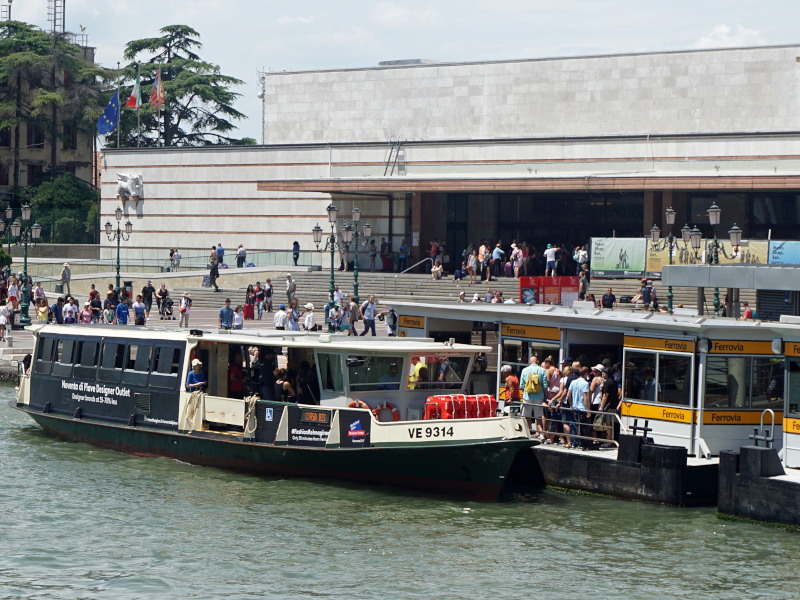
Photo "Vaporetto stop Stazione di Venezia Santa Lucia 07 2017 4038.jpg" by Mariordo (Mario Roberto Durán Ortiz) CC BY-SA 4.0.
Accommodation
The status of Venice as one of Europe’s busiest tourist destinations also means that there are countless options for accommodation, both in the historic centre and in the towns nearby. For instance, the area around the Venezia-Mestre railway station on the mainland has a high concentration of budget and medium-range hotels and reasonably priced short-term apartment rentals. More information on the EACS website.
We kindly ask the conference participants to book their accommodation themselves.
